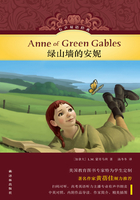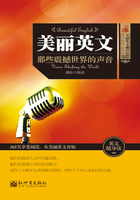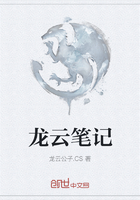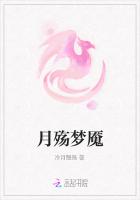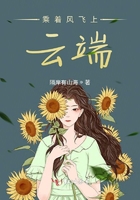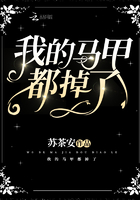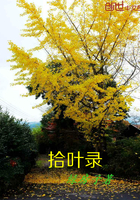In 484 BC, Confucius returned to his hometown, in the cultured State of Lu. Years of wandering and frustration had eroded his enthusiasm for participating in government and political affairs, and made him contemptuous of both scholarly honour and riches. As he once pointed out, “If I can attain wealth and honour just because I pursue them, then even a cart-driver could be a successful man; but if I can’t attain wealth and honour even though I relentlessly pursue them, I’d prefer to do what I really like.”
But what did he really like? During his life, it had proved impossible to overcome the political conditions of the day and return society towards a foundation based on the ritual system. In the end Confucius saw his time and energy as being better spent in teaching his disciples and gathering and compiling his beloved ancient ritual and music books. He wanted to leave behind an intellectual and cultural legacy to future generations.
Guan! Guan! Cry the fish hawks
On sandbars in the river:
A good, mild-mannered girl,
A fine match for the gentleman.
This song, which was popular 2,500 years ago, is called Guan Ju. The fish hawk is a species of bird which always remain faithful to their mate, leading many Ancient Chinese to compare them to sweet and faithful lovers. The song itself is about a young man wooing a pretty and kind woman.
Confucius himself liked this folk song very much, seeing it as embodying a sorrowful mood but not a dispiriting one; a delightful feeling rather a licentious one. It is an interesting exercise to investigate how a ballad managed to remain popular for thousands of years right through to today?
When Confucius was alive, there were about 3,000 songs just like Guan Ju. But at that time there was no paper so it was very difficult to preserve and record such songs. Many youngsters today are music fanatics but perhaps not many of them are aware that Confucius who
lived 2,500 years before them absolutely shared their passion for the wonderful world of music. For him, singing was an indispensable part of each day, a practice never interrupted even during the most hardship-filled days of wandering with his disciples. Confucius collected and recorded almost all folk songs popular at that time (mainly in the Yellow River valleys area, the center of ancient Chinese civilization). Much like the practice of categorizing songs into groups like popular, national and bel canto today, Confucius in his later years put the songs he collected into three categories—folk poems, royal and ritual poems. By eliminating repetition, Confucius managed to compile them into the first authentic folk-song collection, widely known as the Book of Poetry. The first song in the collection is Guan Ju.
The entire Book of Poetry is a priceless storehouse of information about the society Confucius inhabited; indeed, it can be seen as an exaltation and condensation of the popular tastes of society. Confucius selected and abridged the folk songs that he gathered from the people and then rearranged and compiled them into the book. The philosopher was no elitist: songs from the common people dealing with earthy subjects are not omitted. Confucius was in no way sanctimonious. In fact in many respects one could argue that Confucius himself and Confucian thought bear great resemblances to the common people and the way they lived their lives.
Confucius spent most of his later years compiling books and teaching his disciples. He knew he might not live to see a stable society: the world returning to a state of “Ren,” but he never lost faith in his ability to finally realize his ideals through teaching his disciples and educating them in the lessons contained in the ancient books he was compiling.
Spring and Autumn Annals was the most important work composed by Confucius in his later years. The historical events described in this book mostly took place in the Spring and Autumn Period (770 BC-476 BC) before the Qin Dynasty (221 BC-206 BC), hence the name. It was the earliest Chinese historical chronicle; indeed it was the first such chronicle to be written in the entire world. It recorded significant historical events and special astronomical phenomena in ancient China. As a writer, Confucius was always open to suggestions from others, but the Spring and Autumn Annals was the one work where he determined to work alone without help or suggestion. He once said, “I will be at once revered and cursed by later generations because of this book.”
One historical detail, which ties in with his writing this book, gives an interesting insight into Confucius’ mentality at this time.
Once when the King of Lu was out hunting, he captured a strange, never-before-seen animal, which was said to have a fleshy horn, horse’s hooves, and an ox’s tail. Nobody knew what it was. Confucius came to see the animal and immediately recognized it to be a kylin. According to ancient sayings, a kylin was a propitious animal and its appearance was seen as the harbinger of a flourishing age. Confucius was very sad when he saw the kylin, and exclaimed: “How can you appear here and now in such a turbulent society?” He associated his own fate and frustrated life with that of the kylin and thought he should have been born in a flourishing age where he would have achieved great things. But in such a troubled age, Confucius felt it impossible for a man like himself to achieve anything of note. The final words of the Spring and Autumn Annals capture this melancholy feeling: “Captured a kylin when hunting in the west.”
It is a perplexing conundrum for scholars to try to figure out just how many books Confucius himself compiled and edited. After two and a half millennia, only the Book of Songs and Spring and Autumn Annals survive. But his ideas and thoughts did not need to be written down to endure. They have been handed down from father to son for countless generations and remain very much alive today.



